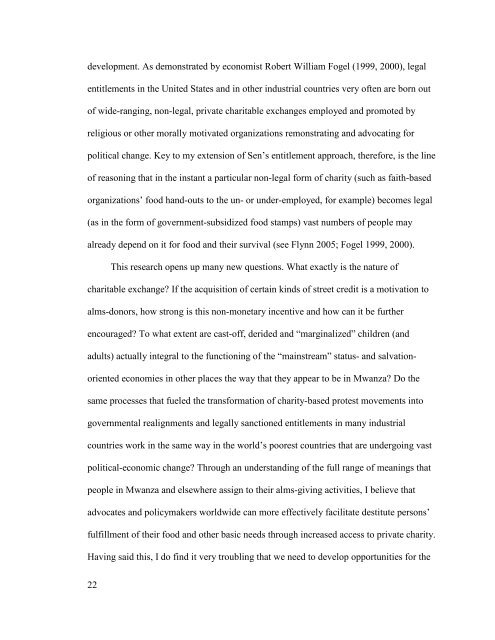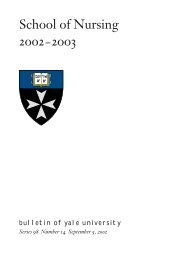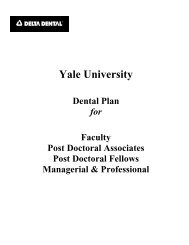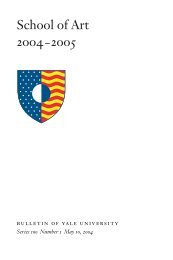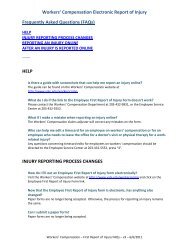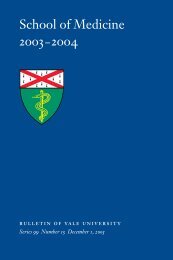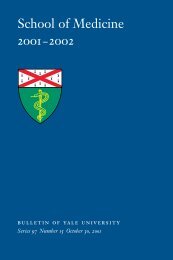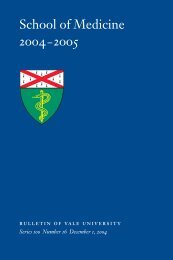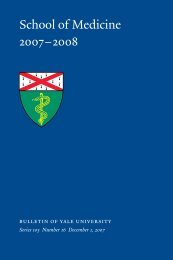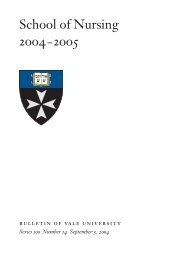Create successful ePaper yourself
Turn your PDF publications into a flip-book with our unique Google optimized e-Paper software.
development. As demonstrated by economist Robert William Fogel (1999, 2000), legalentitlements in the United States and in other industrial countries very often are born outof wide-ranging, non-legal, private charitable exchanges employed and promoted byreligious or other morally motivated organizations remonstrating and advocating forpolitical change. Key to my extension of Sen’s entitlement approach, therefore, is the lineof reasoning that in the instant a particular non-legal form of charity (such as faith-basedorganizations’ food hand-outs to the un- or under-employed, for example) becomes legal(as in the form of government-subsidized food stamps) vast numbers of people mayalready depend on it for food and their survival (see <strong>Flynn</strong> 2005; Fogel 1999, 2000).This research opens up many new questions. What exactly is the nature ofcharitable exchange? If the acquisition of certain kinds of street credit is a motivation toalms-donors, how strong is this non-monetary incentive and how can it be furtherencouraged? To what extent are cast-off, derided and “marginalized” children (andadults) actually integral to the functioning of the “mainstream” status- and salvationorientedeconomies in other places the way that they appear to be in Mwanza? Do thesame processes that fueled the transformation of charity-based protest movements intogovernmental realignments and legally sanctioned entitlements in many industrialcountries work in the same way in the world’s poorest countries that are undergoing vastpolitical-economic change? Through an understanding of the full range of meanings thatpeople in Mwanza and elsewhere assign to their alms-giving activities, I believe thatadvocates and policymakers worldwide can more effectively facilitate destitute persons’fulfillment of their food and other basic needs through increased access to private charity.Having said this, I do find it very troubling that we need to develop opportunities for the22


